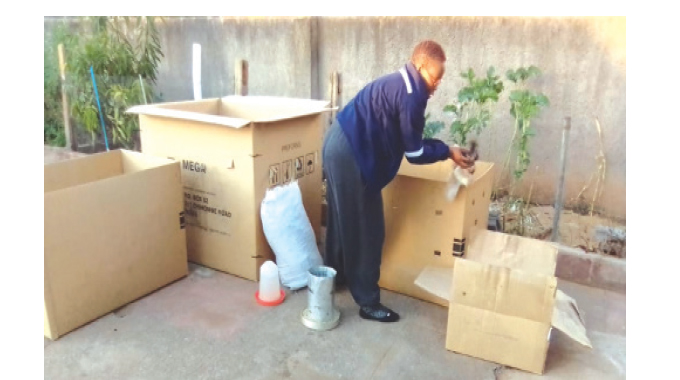
Yvonne Ncube, Chronicle Reporter
A BULAWAYO woman has gone against the grain and defied odds through self-taught natural alternatives that are keeping her chicks alive as a number of smallholder poultry farmers are going out of business following rampant death of livestock which they attribute to the cold weather.
As the temperatures get lower, alternatives have to be adopted to ensure that the chicks survive. The cold spell has a deadly effect especially on young chicks which require warmth for survival.
The use of expensive heaters and ventilators has forced some farmers to defer their projects to next summer.
They bewailed electricity costs for heaters that are left on up to 24 hours a day to ensure the warmth of the birds.
Farmers said the extra heating costs drives up overheads and makes their produce expensive, in a market saturated with suppliers.
Chicks have to be protected from all kinds of stress and flu as they affect growth.
A number of smallholder farmers told the Chronicle that they would defer production to the summer season when conditions are more conducive.
The winter season often favours large-scale commercial poultry farmers who have air conditioned or heated fowl runs.
Some smaller producers have been accused of causing deforestation buy cutting down trees to make fires so their chicks keep warm.
However, Mrs Sukoluhle Ncube, a smallholder poultry producer from Nyamandlovu has vowed that none of her chicks will die this winter.
Through home-grown remedies that she says “do not cost a dime,” Mrs Ncube has actually increased the number of birds in her fowl run from 60 to almost 200.
“I have adopted natural ways of preventing my chicks from being affected by the cold weather. I have grouped them into small groups of 40 and placed them in boxes which I cover to reduce the amount of cold penetrating. I have also changed the bedding to hay. Hay is ideal because it is warm and dry. I change it regularly so that it doesn’t get wet and it must always be clean.
“I also give my chicks aloe vera, it acts as an additive chicken feed, has great potential for improving growth, intestinal health, immune system response and reduces mortality rate. Blackjack is also essential for chickens as it reduces weight loss and prevents digestive disorders in chickens,” she said.
Mrs Ncube said heaters were not the only solution for a warm environment.
“In place of heaters I put hot water bottles. What I do is add hot water to regular juice bottles and place them in the boxes. That way the warmth of my chicks is guaranteed. Not only fancy expensive things are the solution, there is always an easier way. After adopting these methods I’m happy to say that my chicks have not been affected by flu or stress and I have not recorded any deaths this winter,” she said.
Mrs Ncube keeps Sasso C431 and Sasso T-Rainbow chickens.
“Sasso chickens are more like road runners. They need a lot of space because they require a lot of freedom. In fact, they are like hunters. In that regard I only keep them in boxes when they are still young, at four weeks when they have feathers, I take them to my farm in Nyamandlovu where there is a fowl run suitable for their traits.”
“I sell the chickens at eight weeks; they’ll be fully grown and ready for consumption. As for the layers I sell them to people who sell eggs,” said Mrs Ncube.
She said her message to other poultry farmers was: “losing hope is not an option.”
Farmers who were going out of business, narrated their woes to the Chronicle.
Mr Takura Hove a poultry farmer from Emakhandeni said he has lost 16 of his chicks since the beginning of winter.
“I have lost 16 out of 50 broiler chicks since the beginning of winter. I never encountered such a loss during the summer season so I’m pretty sure this is a result of low temperatures. I have moved them to a room which I keep heated but they keep dying. I’m afraid that I will end up losing all of them because already 16 is too much loss.
“This means that I have lost approximately US$100 because I sell them for six dollars each. I am planning on stopping for now, I will resume again in August. The heaters are expensive, I can’t afford to buy anti-stress vitamins the whole of winter,” he said.
Another poultry farmer Miss Adeline Mambo said since the beginning of winter she has seen a reduction in egg production, fertility and hatchability.
“Winter season has a great effect on poultry production by lowering the temperature of the surrounding area. Since the beginning of winter, when temperatures go down, I have encountered various problems such as reduction in egg production, water intake, fertility and hatchability. This is a setback for my business because my profits are determined by the number of eggs that are hatched,” said Miss Mambo. — @SeehYvonne
